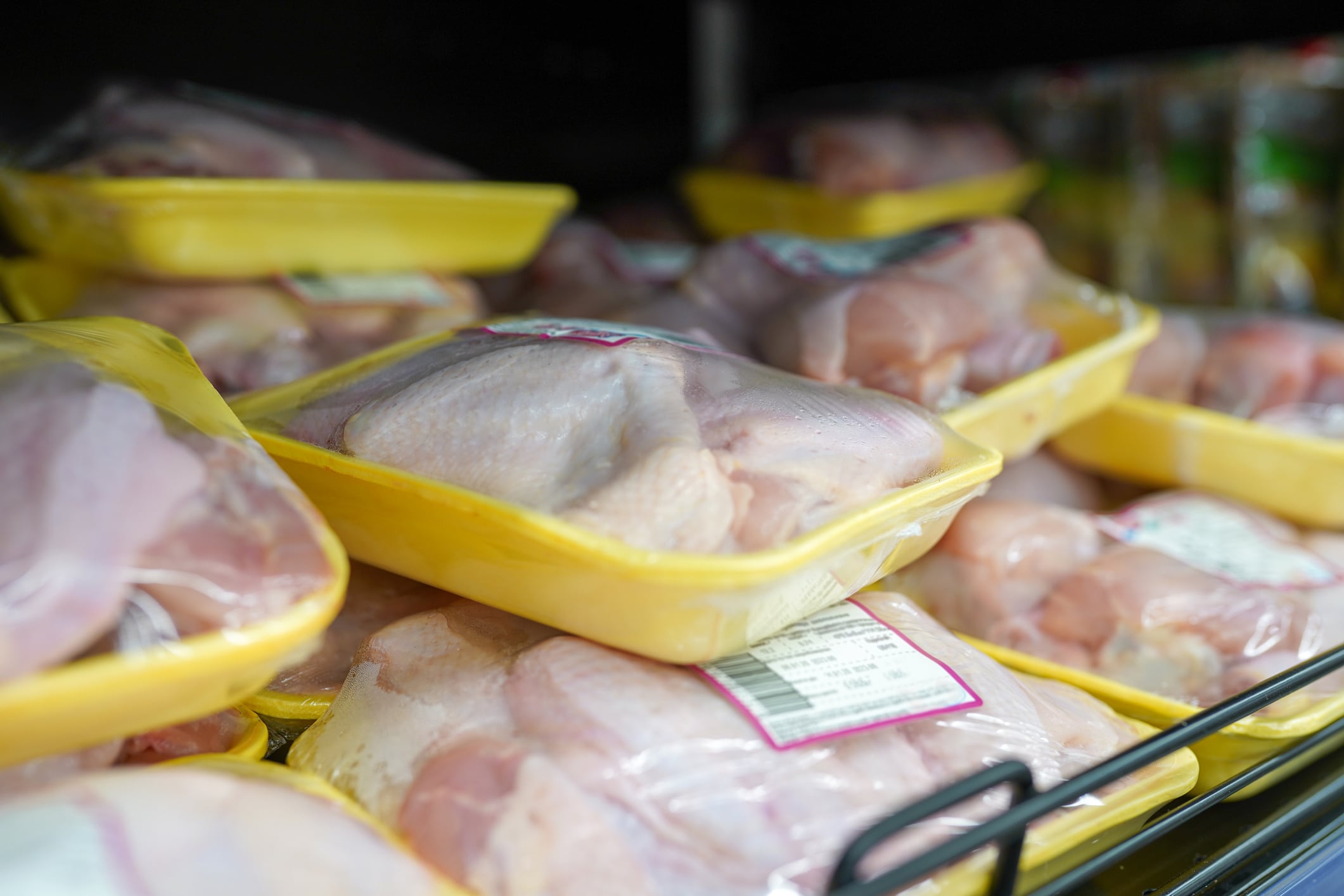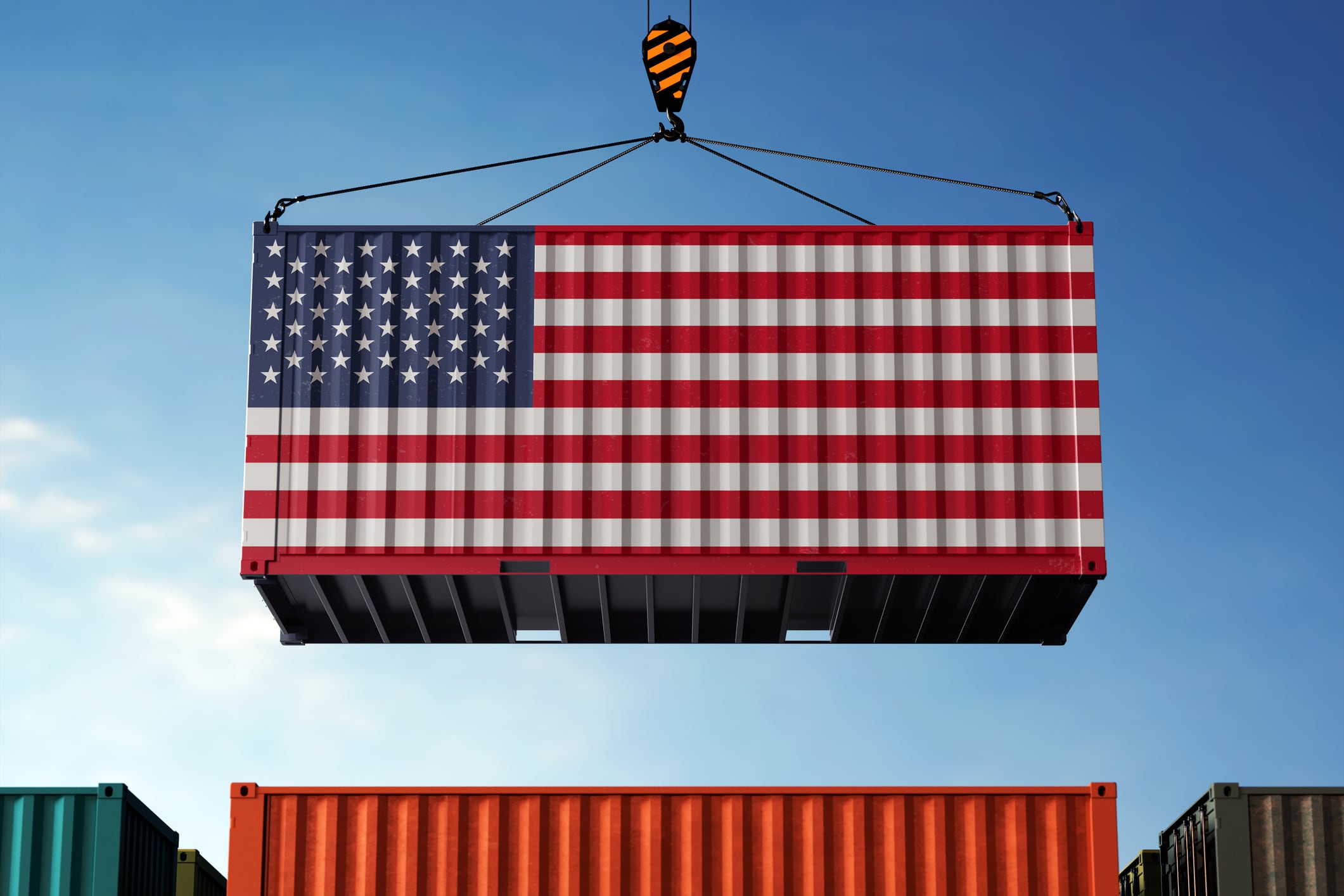Executives at Tyson Foods are unperturbed by the prospect of a trade war, even as tariffs threaten the meatpacker’s pork exports to Mexico, or a crackdown on immigration, which could compromise labor across many parts of the US food industry.
Instead, the meatpacker is celebrating a “solid start” to fiscal 2025 and “another robust performance in chicken” after years of struggling to predict demand for poultry and having to reconfigure production, including closing some plants and opening others with more modern technology, CEO Donnie King told investment analysts yesterday during the company’s first quarter 2025 sales and earnings call.
“Our first quarter performance sets the tone for what we anticipate will be another year of growth for Tyson,” and “marks the third consecutive quarter of year-over-year increases across key metrics” – giving leadership confidence to raise the company’s full year guidance, he said.
The company now expects sales to increase as much as 1%, driven primarily by volume and a “healthy demand for protein,” said CFO Curt Calaway. In addition, the company raised its adjusted operating income expectations to between $1.9 billion to $2.3 billion, he said.
‘We are focused on controlling the controllables’
The company’s confidence runs counter to that of many food industry players who are rattled by President Donald Trump’s turbulent take on tariffs and promises to pursue deportation at a “scale that matters,” but even if a trade war ensues and the immigrant workforce dwindles, Tyson leadership says they are confident the company can meet its raised guidance.
“We are focused on controlling the controllables and we are also adapting with agility to manage the impact of tariffs, immigration and market dynamics,” King said. “We considered these risks when we did our R&Os and in raising our guidance of $100 million.”
He explained that Tyson teams “continuously engage in contingency planning to minimize business disruptions from trade or supply chain changes. As we’ve done in the past, we will leverage our global expertise to identify the best markets for our products, amid evolving conditions, and we’ve been doing this for 90 years and been navigating various administrations.”
Even as the company makes contingency plans should tariffs tighten trade, especially with Mexico which King noted is a “large trading partner for us,” the leadership team appears to hold out some hope that tariffs will not come to pass or trigger retaliation.
“We saw the information over the weekend. There are still some details to be worked out from what I have seen,” King said about potential tariffs against Mexico.
Indeed, late yesterday Trump has ordered a 30-day reprieve on tariffs on Canada and Mexico after each agreed to new border security plans.
Regardless of what happens with potential tariffs, King said Tyson will leverage its “global knowledge and expertise to try to move” pork and chicken to other markets if necessary.
“We’ve been preparing for this, making adjustments,” he added. “We now have to execute some of those things – but we think we have risk adjusted in our guidance the implications of all of those.”
Deportation threats are de minimis for Tyson
Tyson Foods’ confidence in the coming year also accounts for threats by the Trump Administration to deport immigrants at a “scale that matters,” which some fear could cripple harvests and supply chains given the heavy reliance of the food industry on immigrant labor.
“We are confident that we will be able to continue to successfully run our business,” King said.
He stressed “everyone that works at Tyson Foods is legally authorized to do so,” and the company is “in complete compliance with every one” of the different statuses for immigrants, including for refugees, parolees, Deferred Action for Childhood Arrivals (DACA) and those with temporary protective status.
“There have been no immigration or ICE visits to any of our facilities,” and no changes in attendance or absenteeism across all plants to date, he added.
‘Protein remains at the forefront of consumer preferences’
Tyson Foods’ confidence in the upcoming year, despite looming macro-economic challenges, rests in part on Americans seemingly insatiable demand for protein.
“Protein remains at the forefront of consumer preferences based on both per-capita consumption data and consumer surveys. While the consumer backdrop remains dynamic, one thing is clear to us: Consumers remain focused on prioritizing protein in their diets,” King said.
“A recent study by the International Food Information Council revealed that 71% of US consumers in 2024 thought to increase their protein consumption. This is up from 59% in 2022,” he explained.
He added: “Our diversified multi-protein portfolio delivered results, with chicken helping to offset the ongoing challenges in beef. Through disciplined execution and improved operational performance, we have demonstrated the power of sticking to the fundamentals, fortifying our foundation and controlling what we can.”
This is a far cry from the company’s perspective just one year ago when it struggled to contain loss, primarily related to missteps in its poultry business. In response, the company has focused on fundamentals, which included shuttering six chicken facilities in 2023 and closing its corporate offices in Chicago and South Dakota in 2022, which included massive layoffs.
The company also “optimized” its network by opening a new facility in Danville, Va. in late 2023 where it can more efficiently produce value-added items – a significant milestone for its multi-prong improvement plan.



